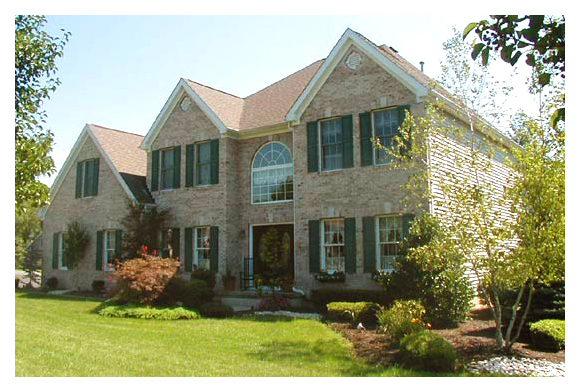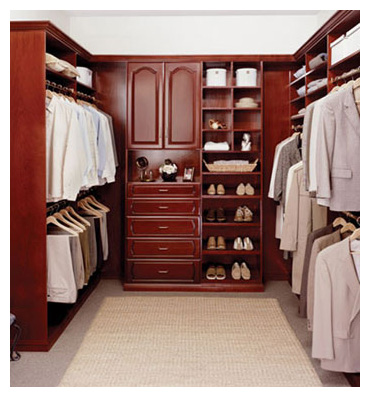|
   
Selling
Your House
|
Getting
the Best Price For Your Home |
Effective marketing is the
key to selling your home quickly and getting the highest
price. Aggressive, effective marketing of our client's
homes by every available medium is how we've ve become a
top real estate agents in the area. It's our job to
assure that you get as many qualified offers as
possible, allowing you to extract the highest price the
market will bear.
One of the most important elements of marketing your
home effectively is setting the price right. Set the
price too high, and you won't get any offers and your
home will take too long to sell. Set it too low and you
cheat yourself by not getting your home's full, fair
value. We are experts in the area and we analyze the
market and set area home prices every single day. We'll
work closely with you to assure that everything possible
is done to get the highest price, in the time frame you
need.
The condition and appearance of your home are also
critical factors in getting the best price for your
home. We'll personally walk with you through your home
and advise you of what you can do to properly stage your
home most effectively. Some areas are much more
important and more likely to pay off than others! Often,
the buyer is motivated by emotional responses as much or
more than financial issues. There are usually things we
can point out to you that are easy and inexpensive, yet
go a long way toward triggering those "buy" emotions.
As your agents, we'll negotiate furiously on your behalf
throughout the entire process to ensure that your best
interests are protected. Real estate negotiations and
contracts can be intimidating in their complexity. Most
people have almost no experience in these negotiations.
After all, how often do you buy or sell a new house? As
a top real estate professional, getting you the best
terms and prices in all negotiations is simply part of
my job.
back to top
|
|
Setting
the Sales Price |
Before we set the sales price of your house, we'll run a
Comparative Market Analysis (CMA) that will show the
listing price of similar houses in the area as well as
the prices at which the houses actually sold.
Additionally, the analysis will give us information
about houses currently on the market and about houses
that were on the market but never sold.
Next, we'll ask you about your goals in selling the
house. Everyone who sells a house has different goals
that need to be factored in when calculating the selling
price.
Is your goal to get the maximum sales price for your
house?
If so, are you willing to have your house on the market
for many months?
Is your goal to sell your house quickly?
If so, are you willing to sacrifice some of your
potential profits to sell more quickly?
Would you like to establish a balance between selling
your house quickly and selling at the top end of market
value?
Market conditions will play a role in setting the sales
price of your house. we'll factor in how quickly houses
are selling in your area, interest rates, the strength
of the school system, and finally whether it is a
buyer's or seller's market.
We'll then recommend a price at which to list your house
to meet your goals in the local market.
back to top
|
|
Make
Sure Your House Is Easy To Show |
To get your home sold quickly, it’s important that other
agents in the area show it to as many potential buyers
as possible. The first thing a good agent will do when
working with buyers is talk to the buyer and learn what
kind of home they are looking for. Then the agent will
search all the available homes for those most closely
matching what the buyer wants. Next, the agent puts
together a list of the best matches to go show to the
buyer. When a busy agent is compiling a list of homes to
show a buyer, the agent will naturally tend to show
those houses that are easiest to gain access to first.
Many homes on the market have “lock boxes” on them. The
lock box is a device which holds a key to the home, that
only qualified local agents can access. Homes with lock
boxes will get shown more often than homes listed as
“agent has key or owner must be home”. If at all
possible, you should let your agent put a lock box on
your home for easier showing.
If you can’t do a lock box, you need to be sure that you
make it as convenient and easy as possible for other
agents to show your home. If they call, do whatever you
have to do to accommodate letting them show your home to
buyers on their schedule. If you don’t, the agent will
probably show the buyer other homes, and if that buyer
makes an offer on one of them, you’ve just lost a great
opportunity.
It’s best if you can leave when the agent and buyer
arrive to see your home. Buyers won’t feel comfortable
with you there, and it could sour an otherwise good
impression.
back to top
|
|
Things
To Do Before You List Your House |
|
Once you have decided that you are going to be
selling your house, there are a some relatively easy things you can do
that will
help your house to sell more quickly and at a higher price.

|
|

|
Kitchens
and Bathrooms
-
Remove unnecessary items from your
counter tops.
-
Remove pots, pans and plastic containers that you don't use every day.
-
Clear out cabinets and pantries.
-
Remove the art gallery and coupon
collection from the refrigerator.
-
Are the surfaces clean and clear?
-
Is the flooring clean and fresh?
-
Are towels neatly hung?
These few tips will make your home look
spacious and will really help to sell your house.
|
Closets
Clearing out some of the clothes and other items stored in your closets
can help to make them look like they have plenty of room for the new
occupants. This might be a good time to give away some of your old
cloths or box them up if you have enough storage room.
|
 |
|

|
Furniture
Consider moving some of your furniture into storage if you can live
without it. Rooms will look larger if there is open space and the
furniture doesn't look crammed in. A rented storage space can really
come in handy in this regard.
|
Put Away Things You Don't Need
Your house will look much more spacious and elegant if clutter is removed.
-
Start packing up things you
don't need every day so that your shelves and surface areas don't look
crowded.
-
Rent a storage locker
to help to make garages and basements look clean and usable.
-
Throw away things that you are
not going to take with you when you move.
-
Have a garage sale now
rather than waiting until after you have sold your house.
Remember, the more you
get rid of now, the easier your move will be.
|
 |
Check the walls.
Is paint and wallpaper fresh and clean?
Are the walls free from holes?
Are there any colors or objects on the walls that need to be removed?
Check the floors.
Is the carpet clean and free from stains?
Are hard surface floors clean and free from stains?
Check windows and window coverings.
Are all the windows clean?
Are draperies and blinds clean?
Pet check.
Are there any signs that this is a pet's home? Be sure to clean and remove
kitty litter, pet toys and bedding.
How's the aroma?
Try to air out the home prior to showings.
If air freshener is necessary, use well before showings as a consideration
to those with allergies.
Set the mood prior to showings.
Open draperies and blinds.
Turn on the radio and tune it to a classical music station, set the volume
on low.
Remember to take the time to do these simple things.
These tips will make the buyers
experience more welcoming and pleasurable
and will set you apart from other homes on the market.
back to top
|
|
Should
You Paint? |
There are many factors
involved in marketing and selling your home. You can't
control most of them. The curb appeal of your home plays
a big role in the sales process, and it's one of the
things you can have direct control over. You'll never
get another chance to make a first impression of how
your home looks from the street. If your home exterior
needs new paint, potential buyers might not even get out
of their car to come in and look. Putting fresh paint on
your home, both on the outside and the inside, is
usually the one thing you can do that pays off the
fastest. You'll get more buyers looking, and they'll
like what they see more, translating into a better
chance for a quick offer at a higher price.
Try to stick with light, neutral colors. These seem to
resonate best with buyers. A fresh coat of light beige
on interior walls will freshen up your home and make it
more marketable.
Simply put, new paint is usually the most profitable
improvement you can make when getting your home ready
for sale. So unless your paint is already in like new
condition, you probably should paint.
back to top
|
|
Home
Sellers' Frequently Asked Questions (FAQ) |
Q. Why shouldn't I price my house a little high,
since I can always drop the price later?
A. That's a strategy that sounds good – but, in fact, is
more likely to result in a lower price. Here's why. The
first few weeks a house is on the market is when it will
have the most activity. If a house is overpriced, it has
to compete with houses at that higher price level, which
are almost certainly larger or have newer/more luxurious
features.
So the overpriced home is unlikely to attract an offer.
Worse yet, those first weeks are when real estate agents
preview the house. If it's overpriced, they may not even
bother to show it to their buyers. Eventually, the
seller will have to drop the price – and may end up with
an even lower price because buyers will wonder why the
house has been on the market so long and may factor that
into their offer. An Orange Key Price Trend Analysis
provides a unique method for arriving at a selling price
that takes your local market situation into account.
Q. What is meant by the term "contingency" in a sales
contract?
A. Sales contracts typically contain several
"contingency" clauses, or stipulations that the sale is
subject to. For example, with a mortgage contingency, if
the buyer is unable to obtain financing within the
specified timeframe, neither the buyer nor the seller is
required to complete the purchase. Among other common
provisions in the "subject to" section are termite and
other inspection issues and the purchaser's need to sell
a current home first.
Q. What is an escape clause?
A. An escape clause, also known as a kick-out or
knock-out clause, is a provision that allows the party
to void the contract. For example, the seller may retain
the right to look for a more favorable offer, with the
original purchaser retaining the right, if challenged,
either to firm up the first sales contract (such as by
waiving a contingency) or to void the contract. As
another example, sellers might insist upon an escape
clause in a contract that hinges on the buyers' selling
their home.
back to top
|
return to home page
|